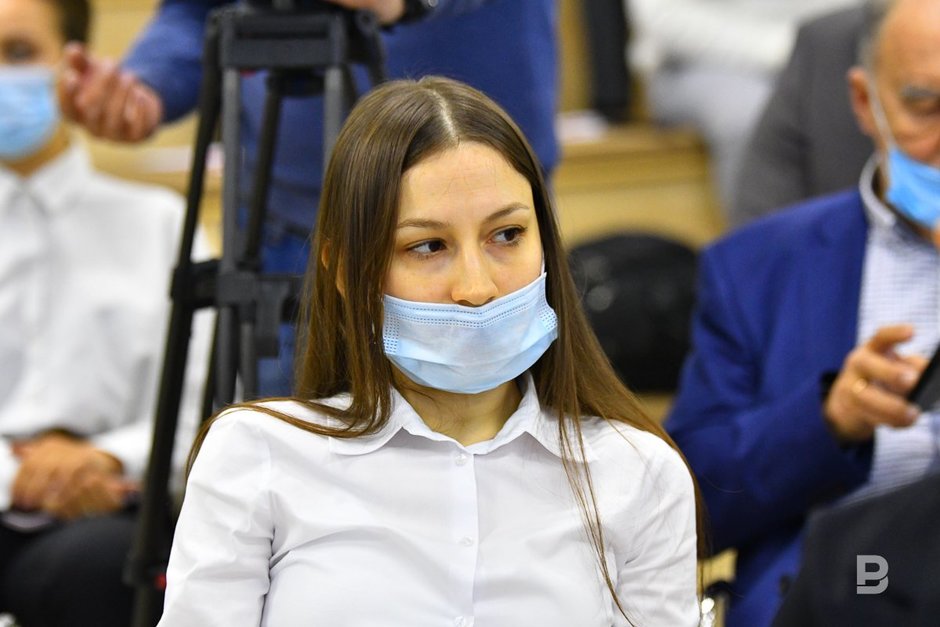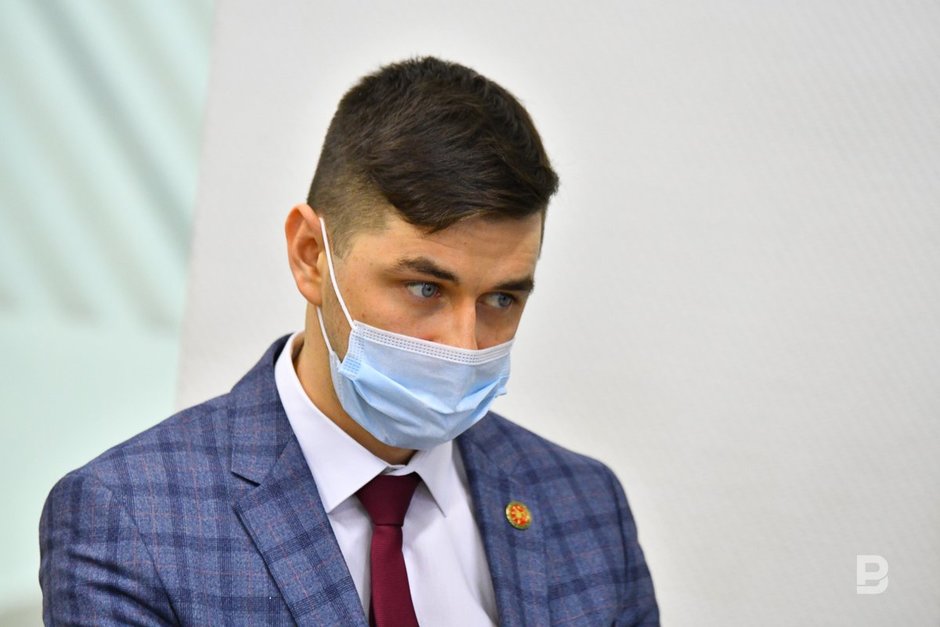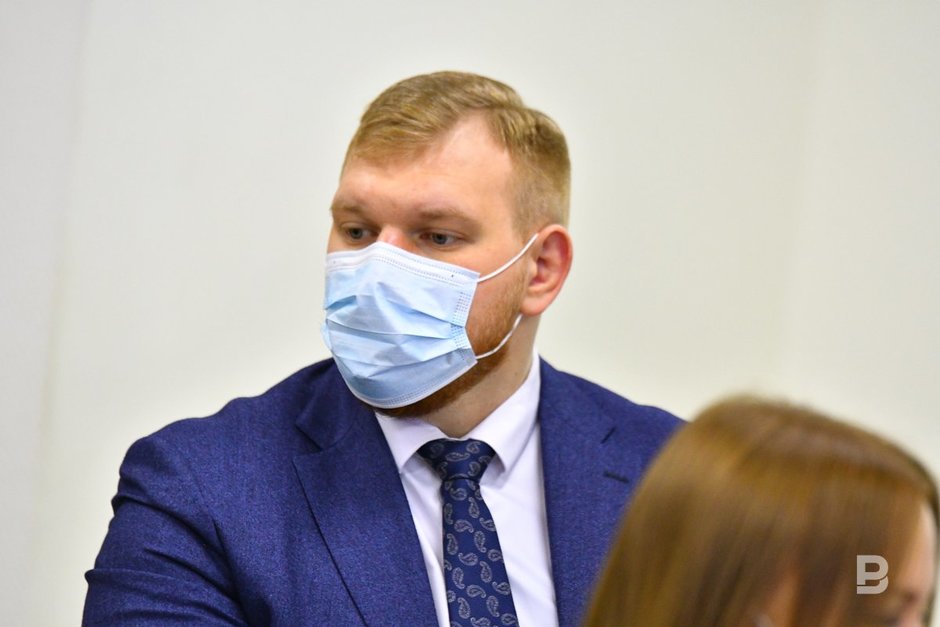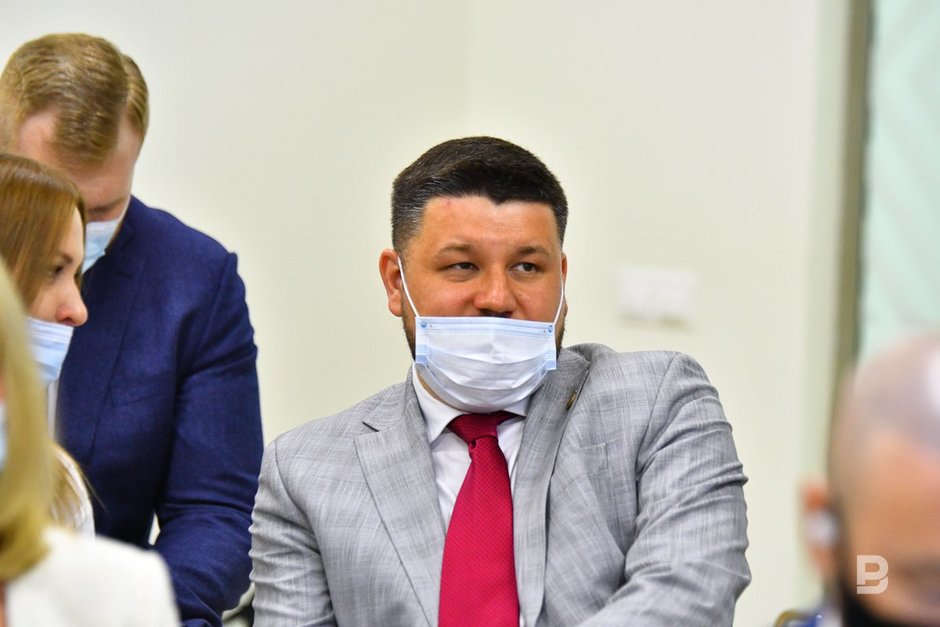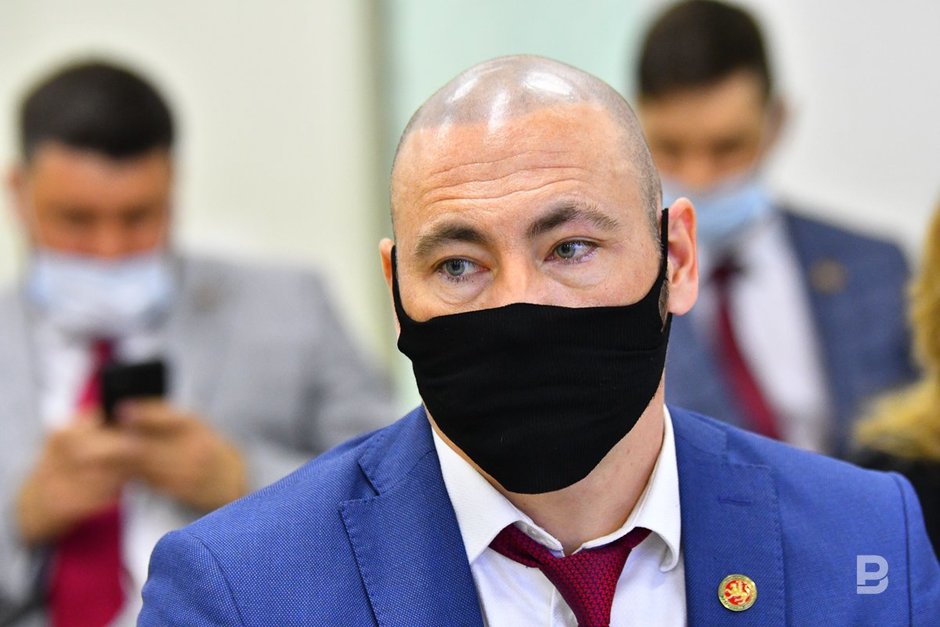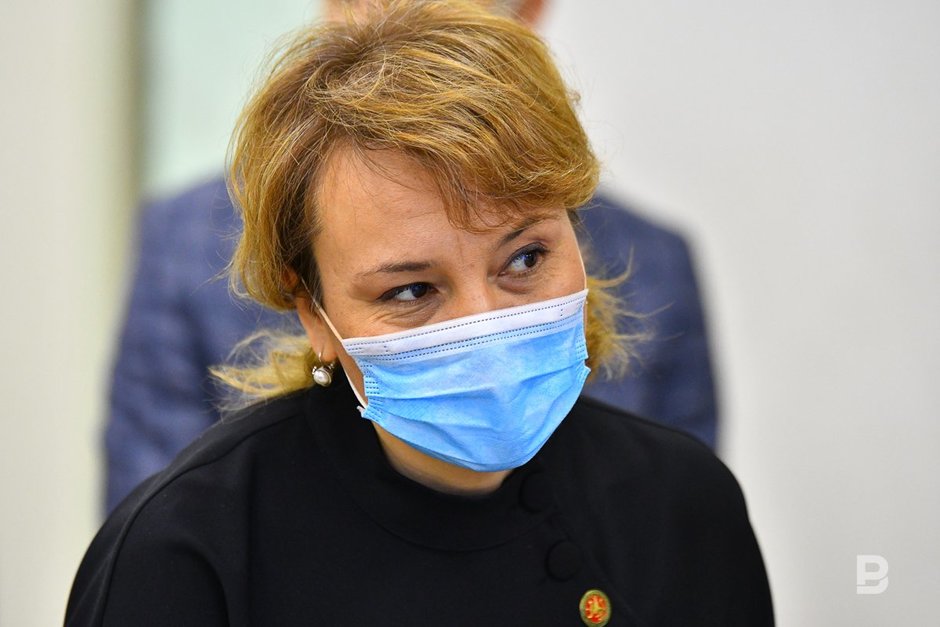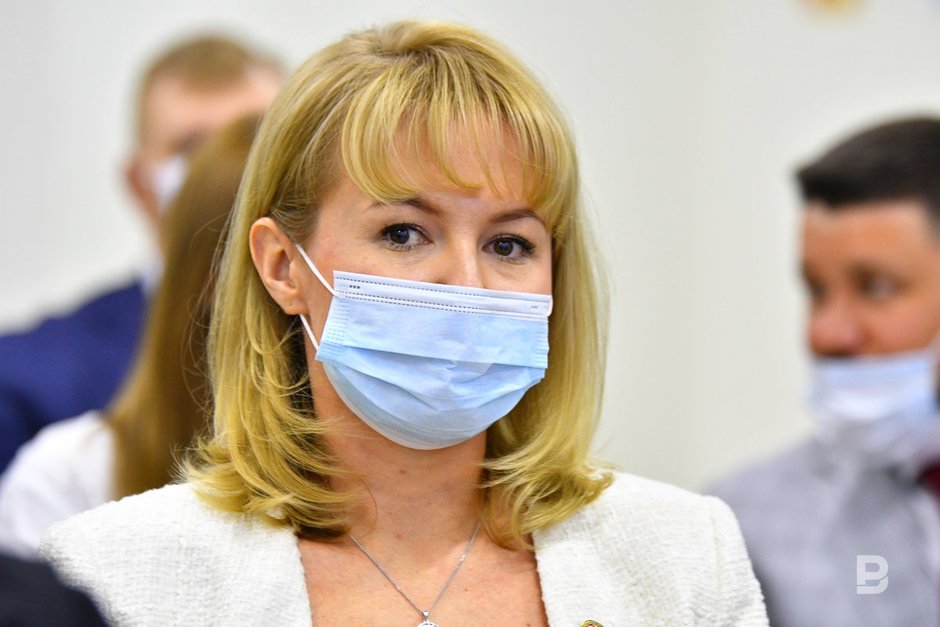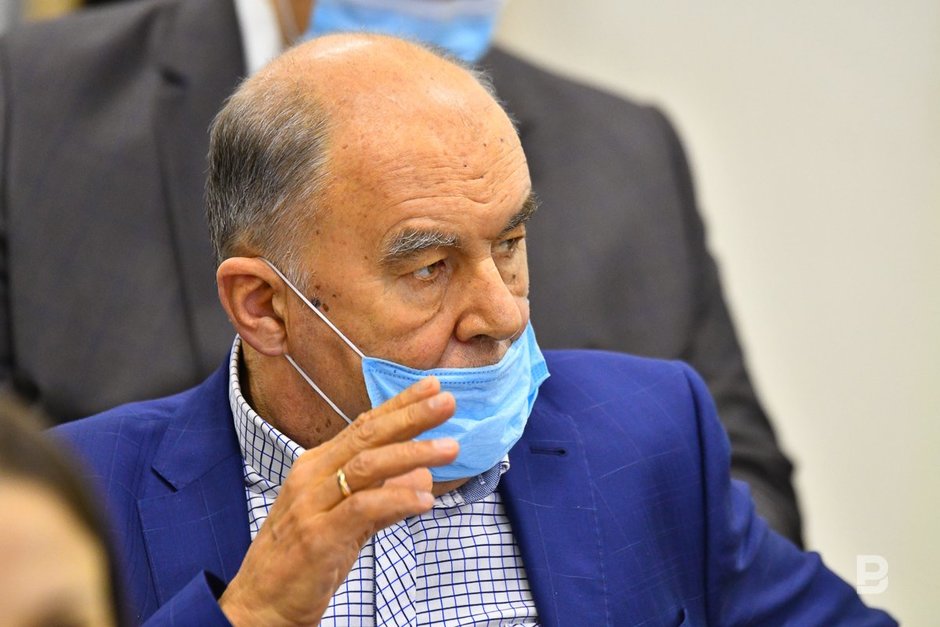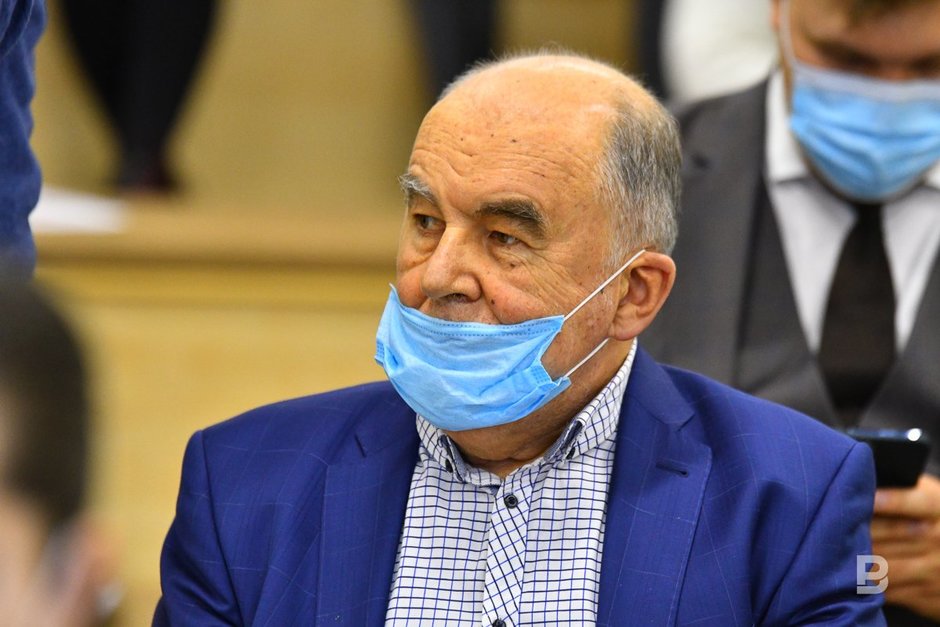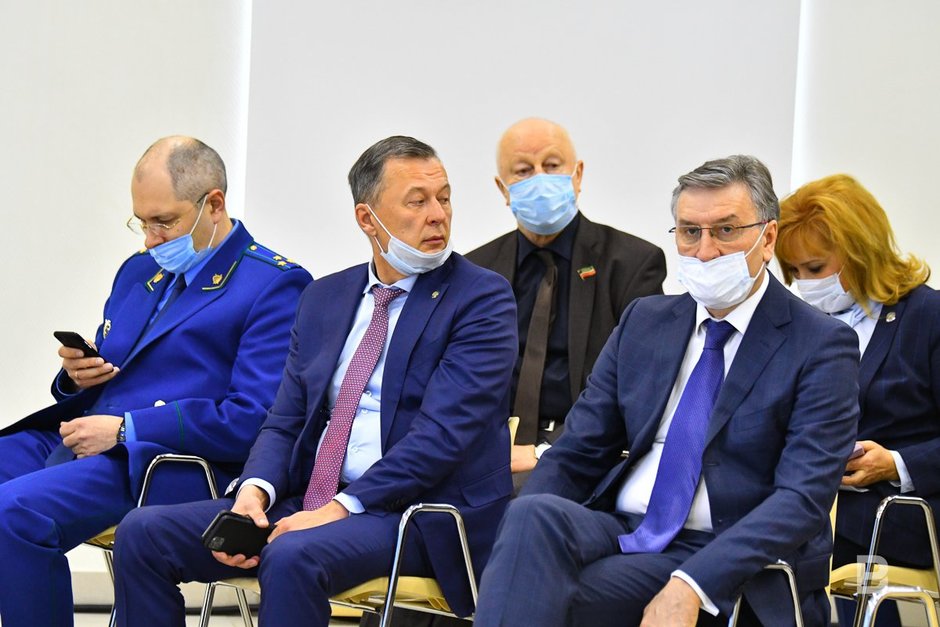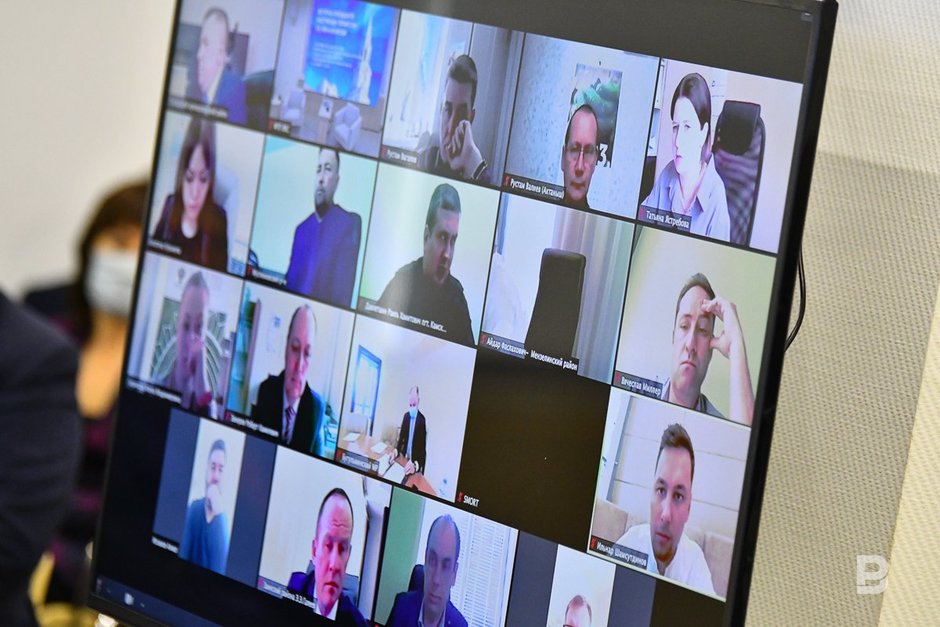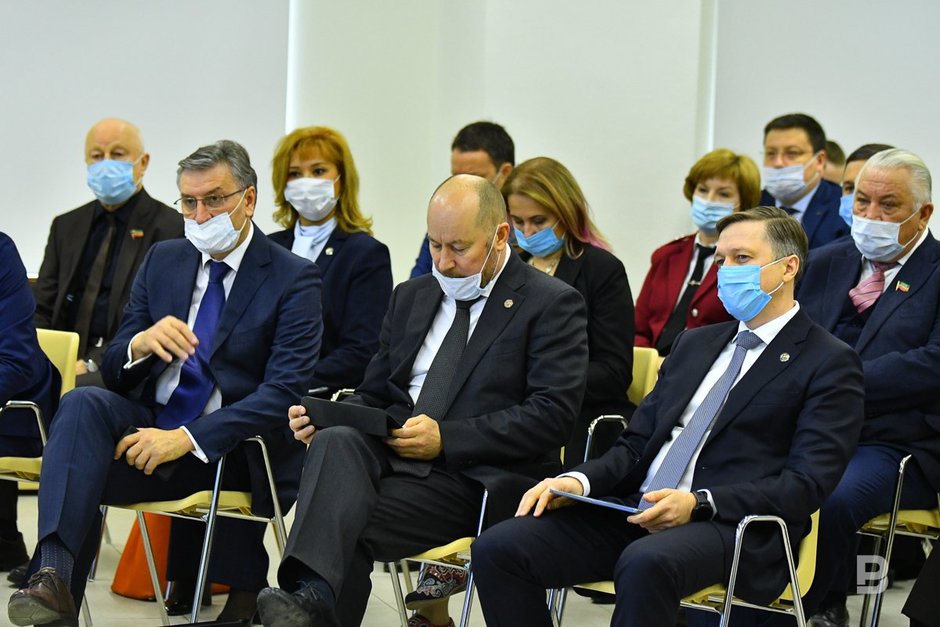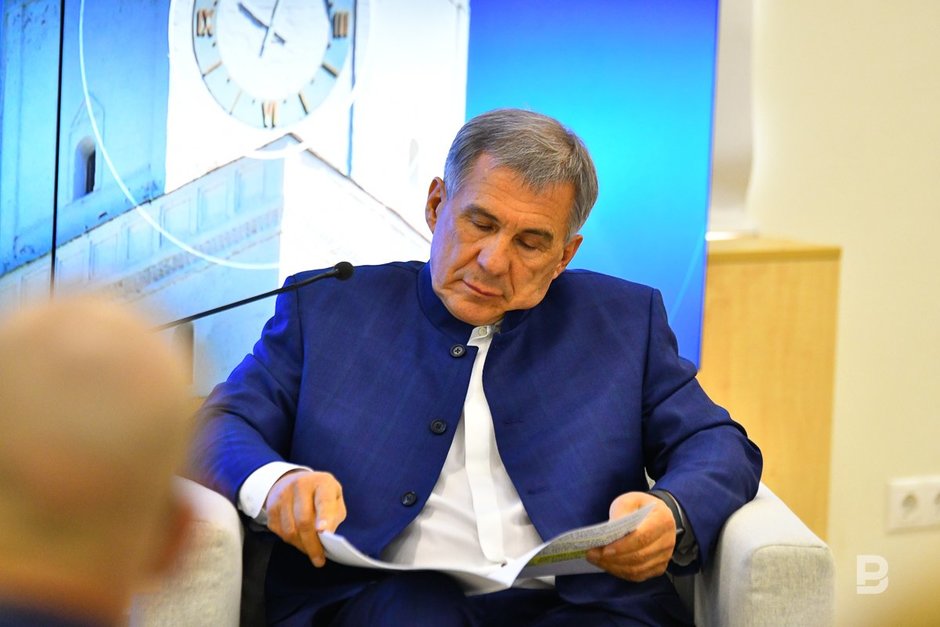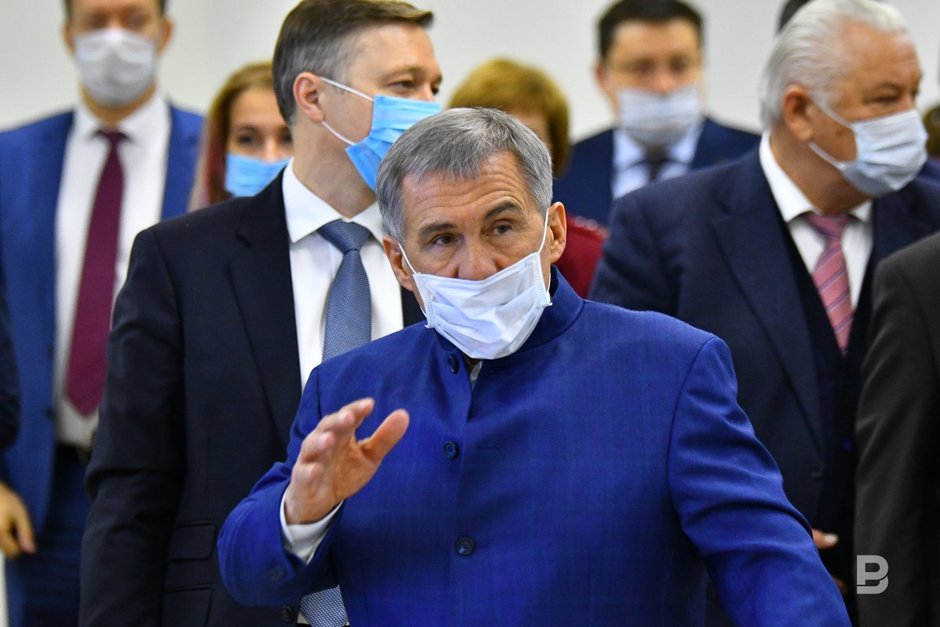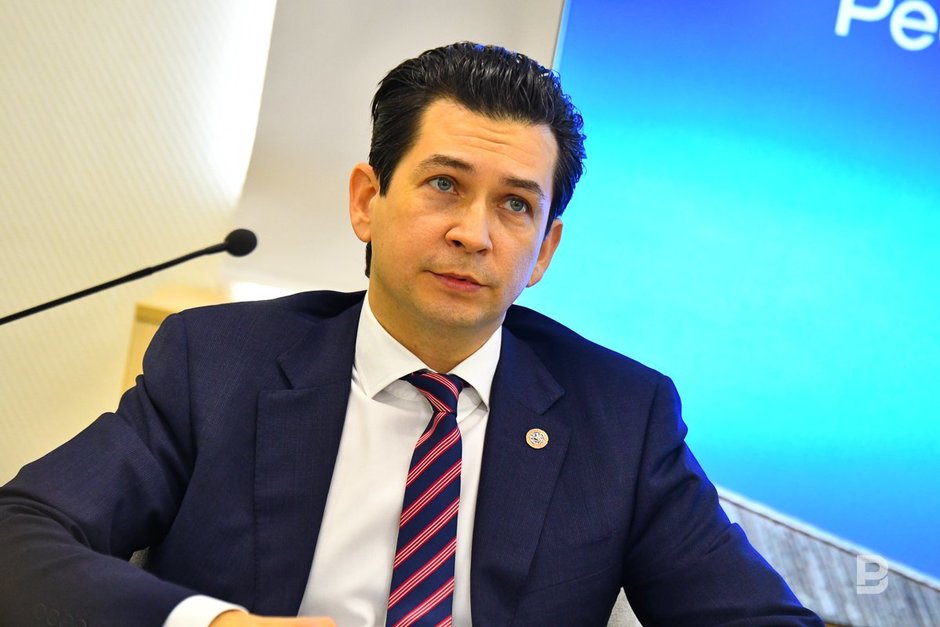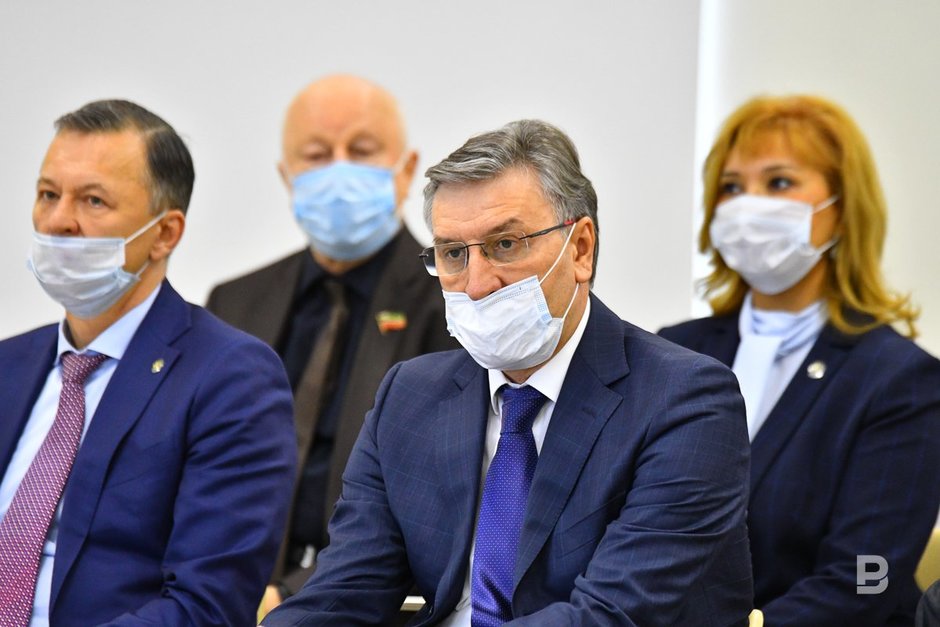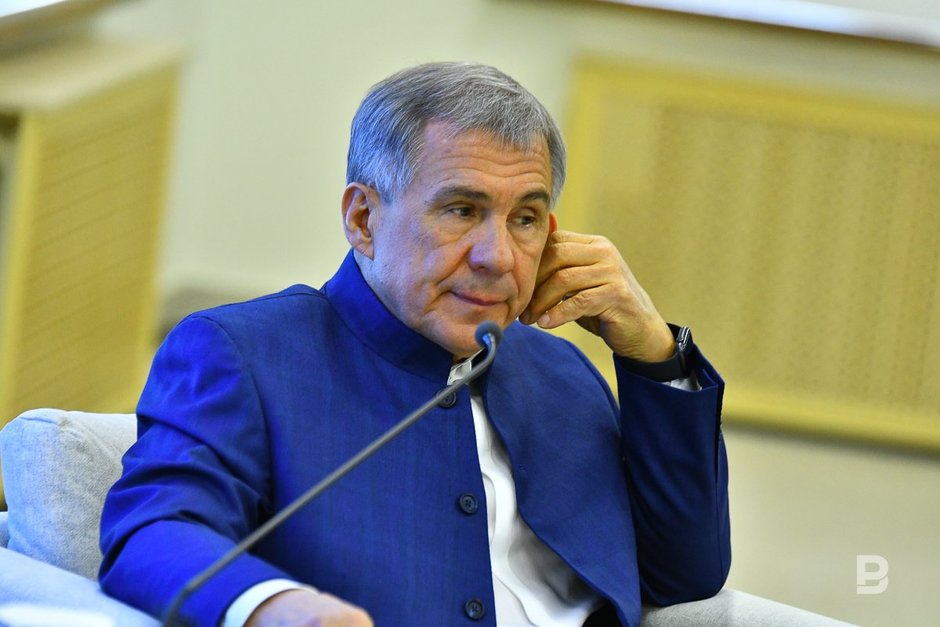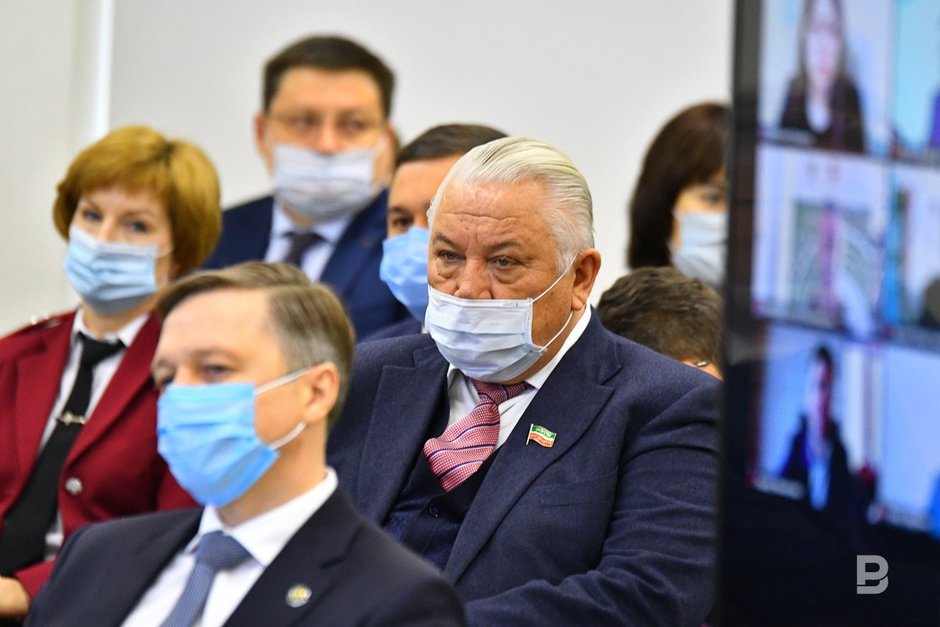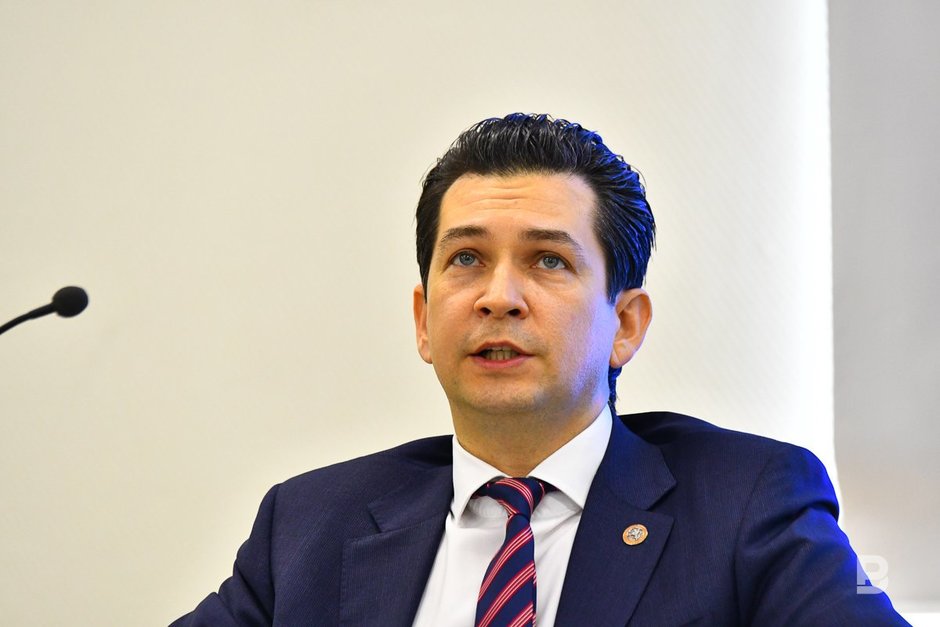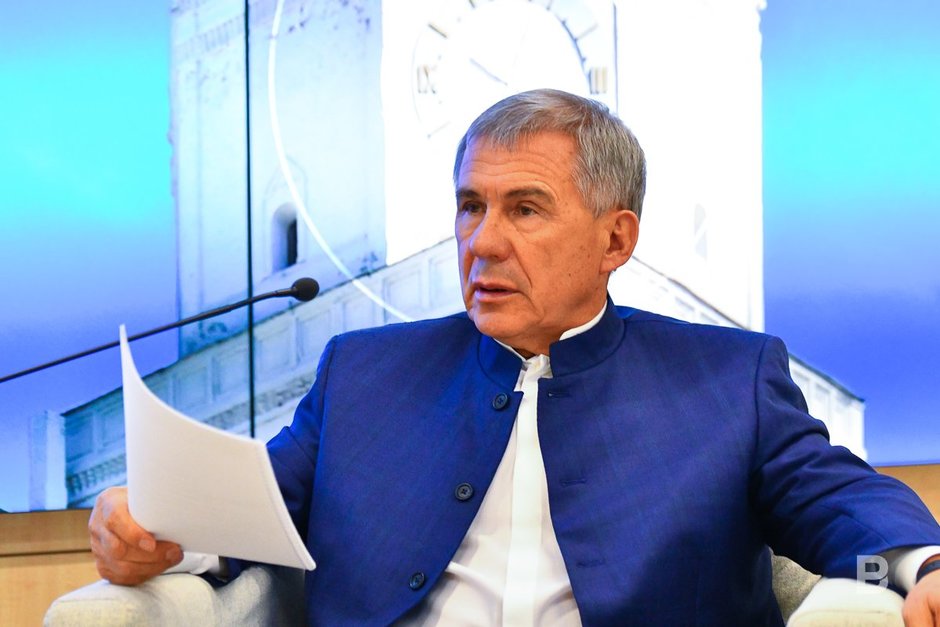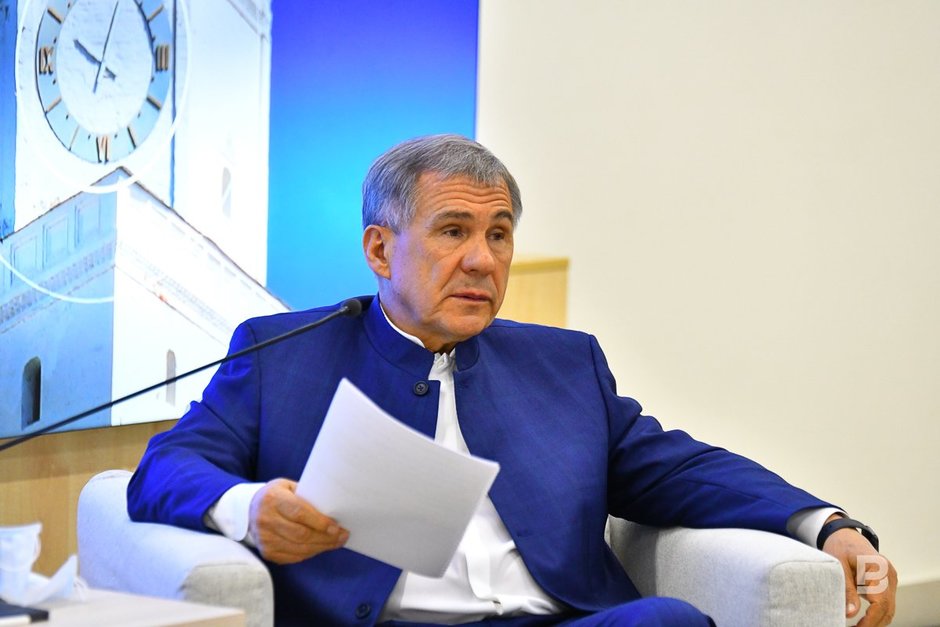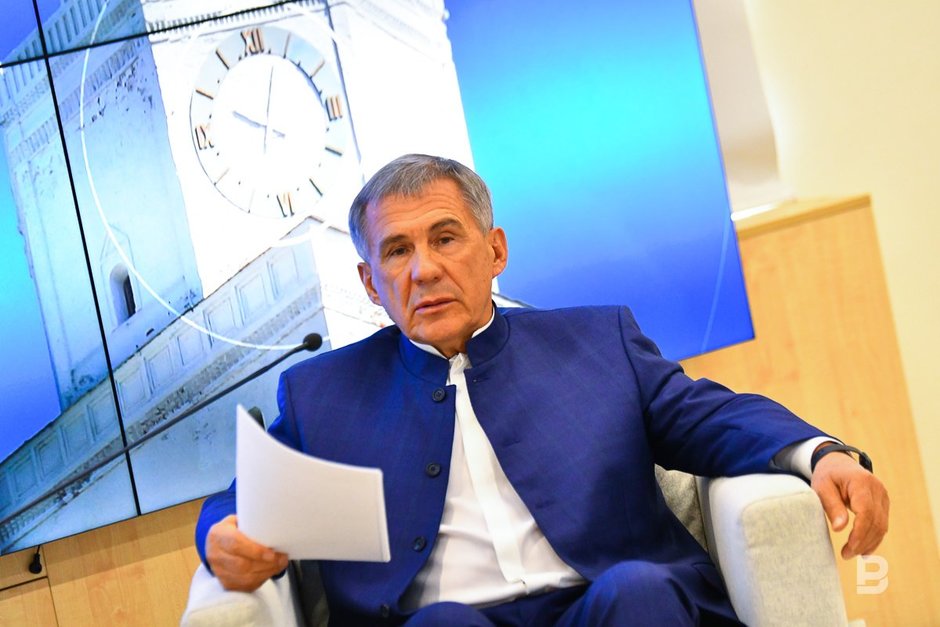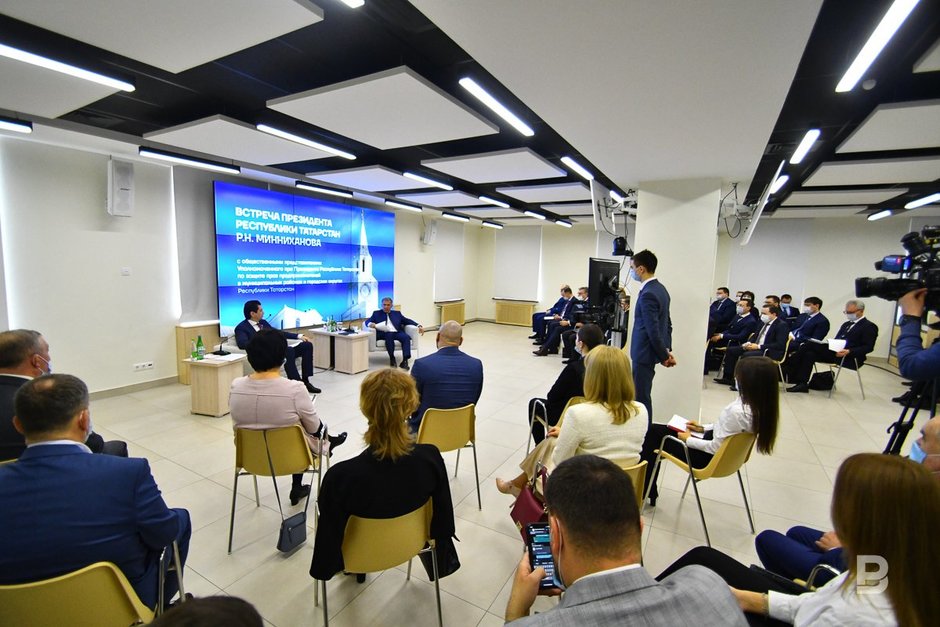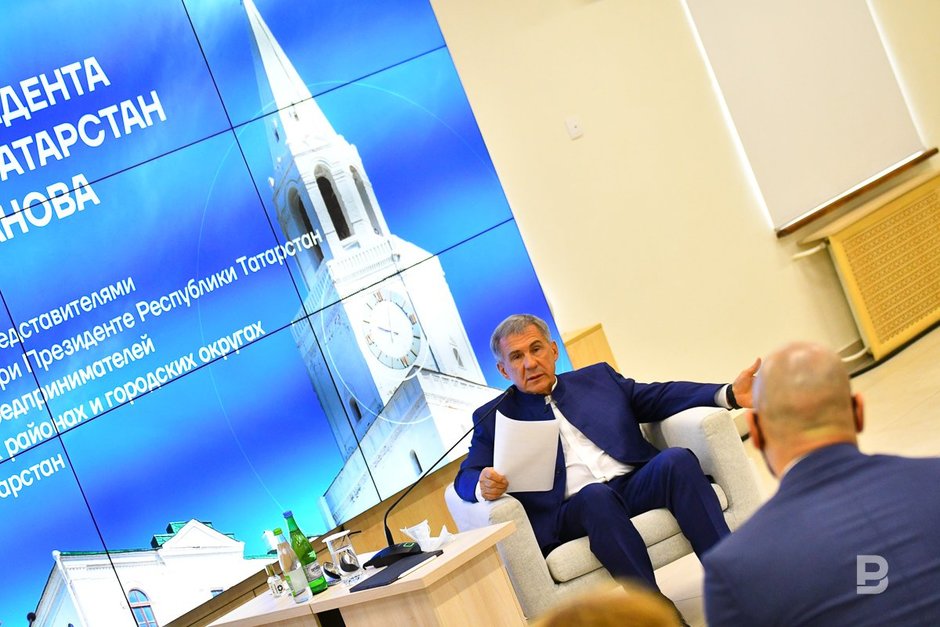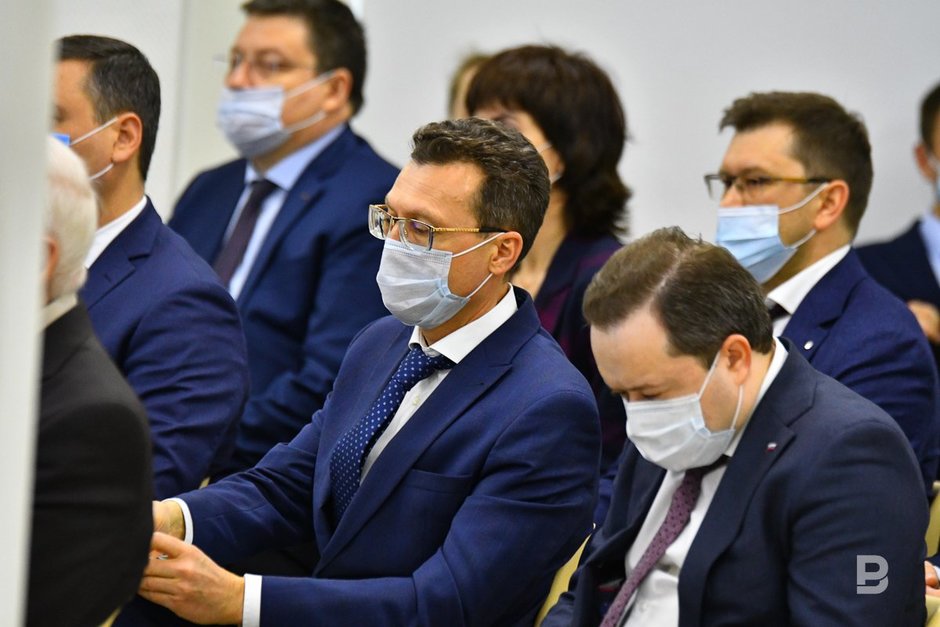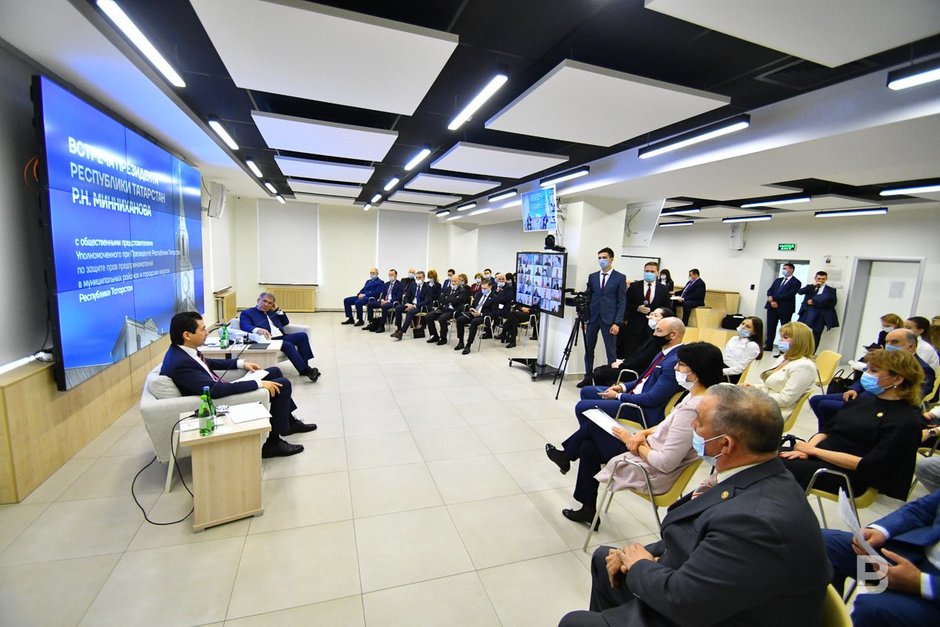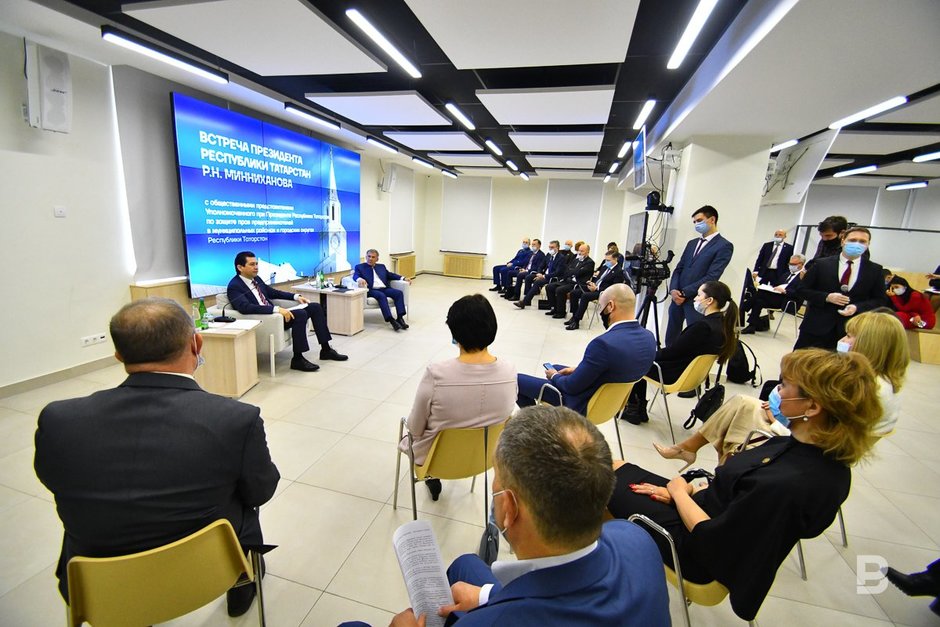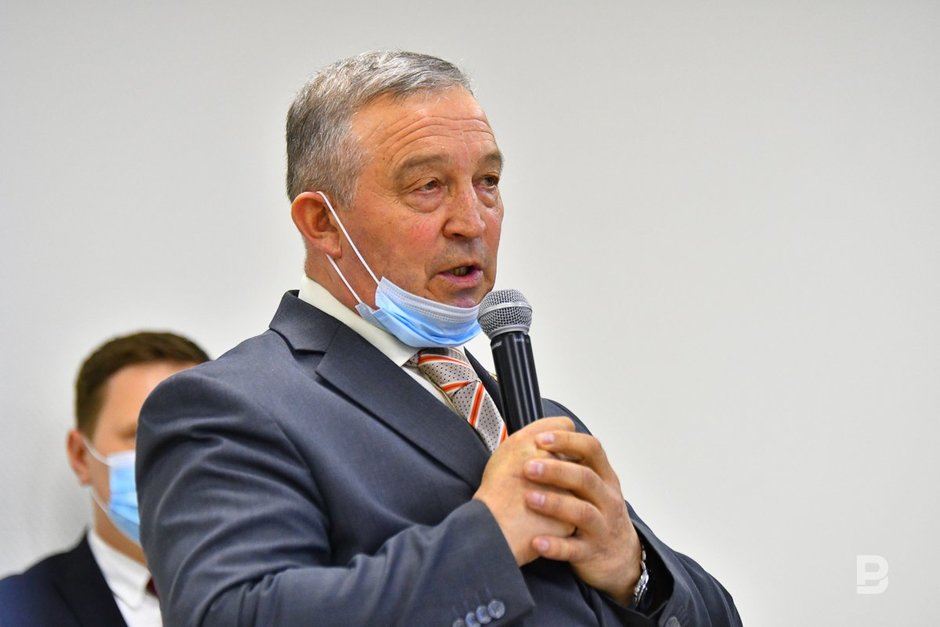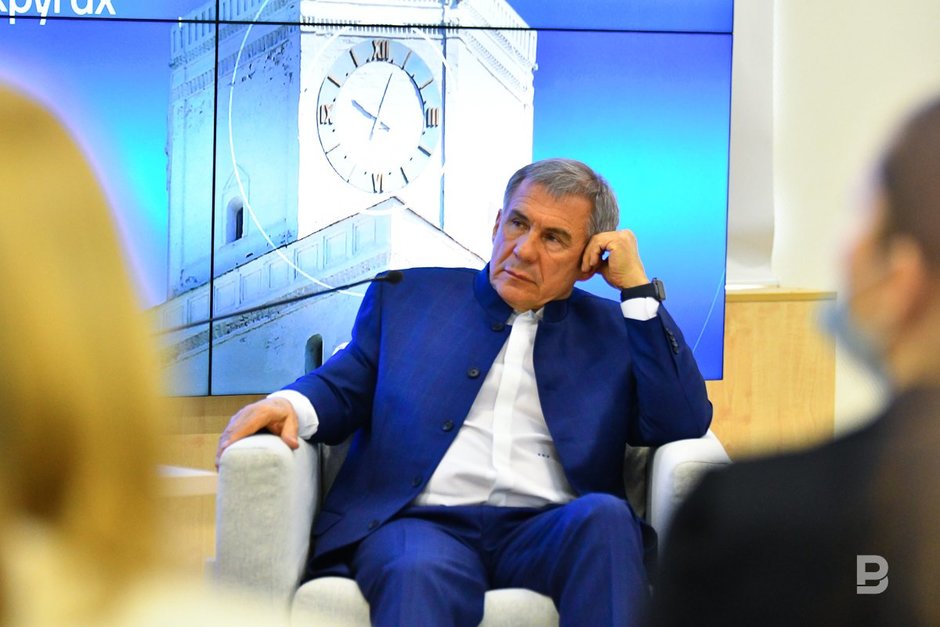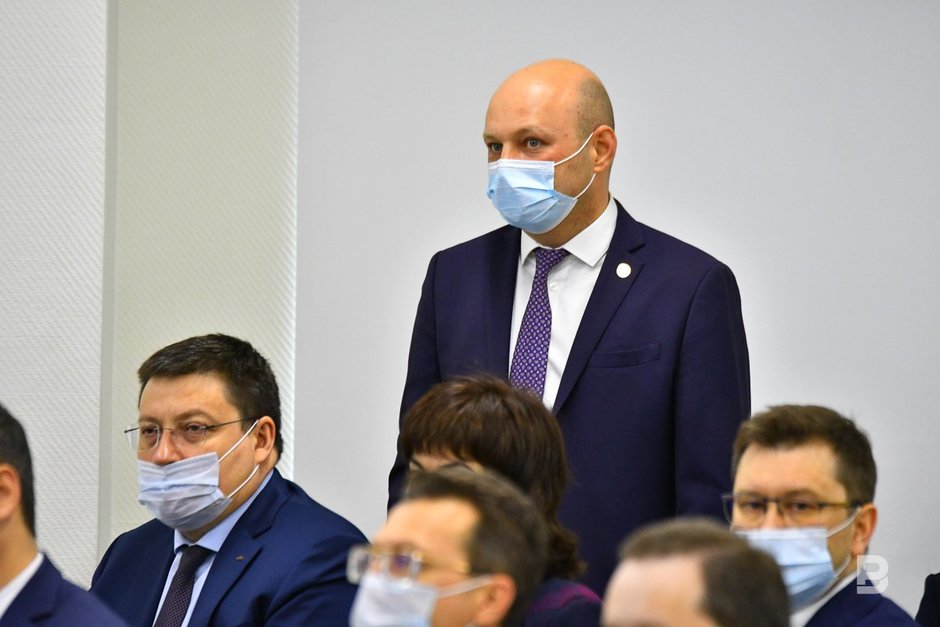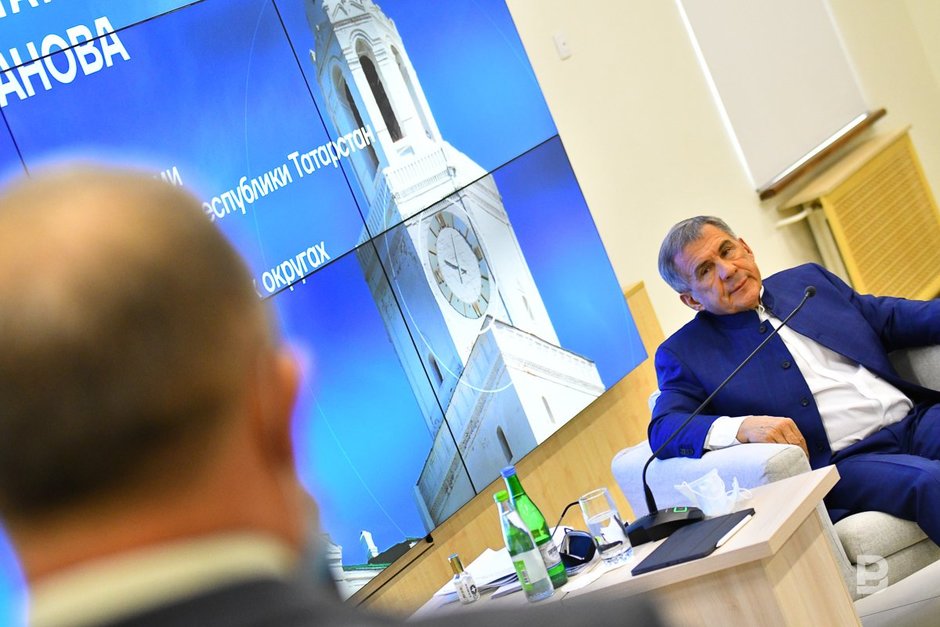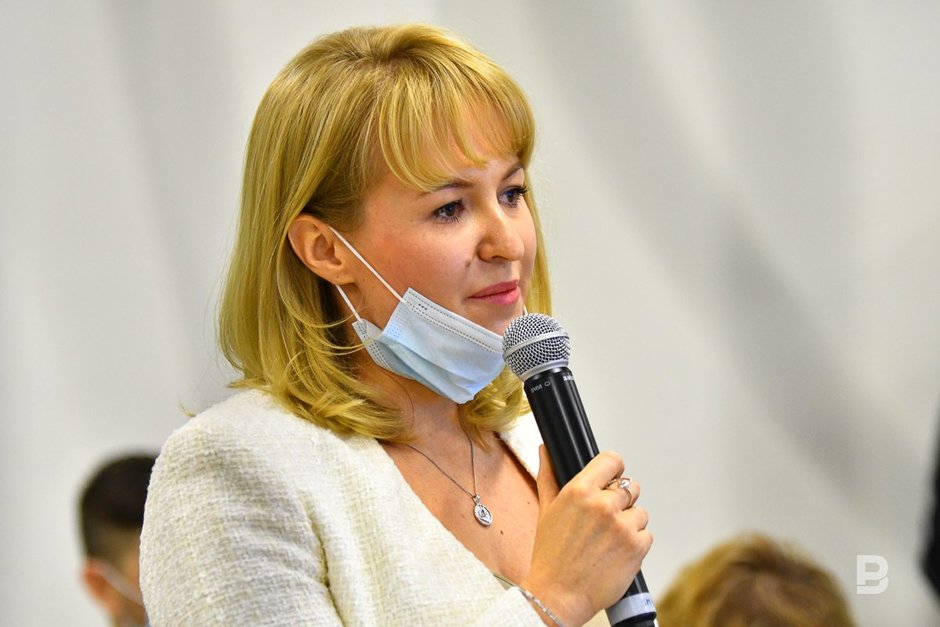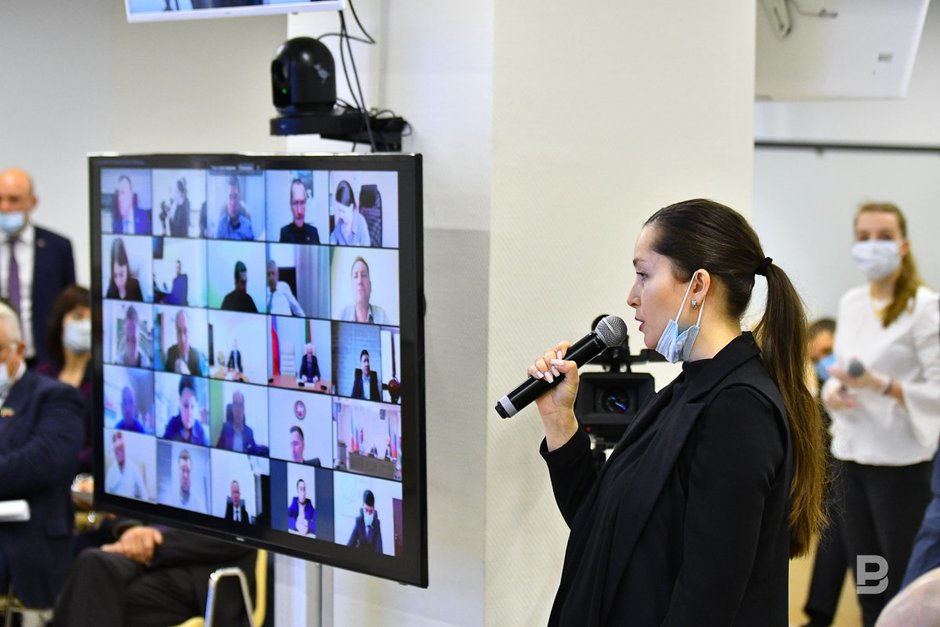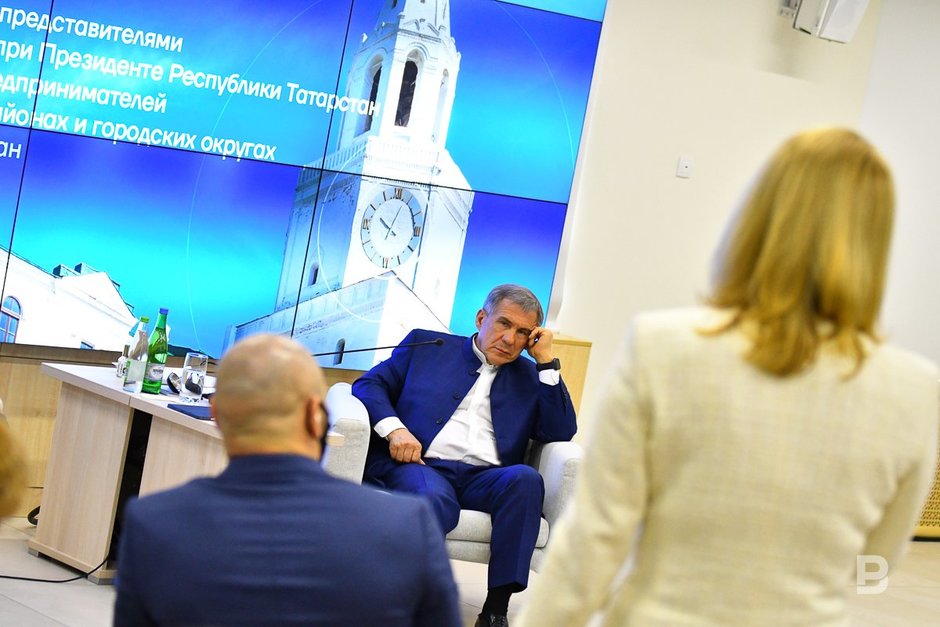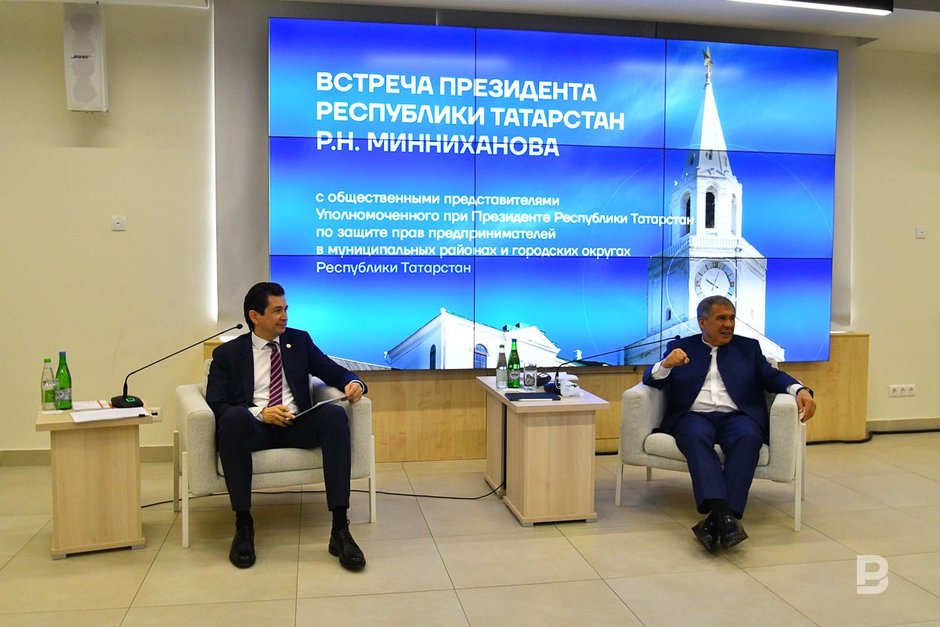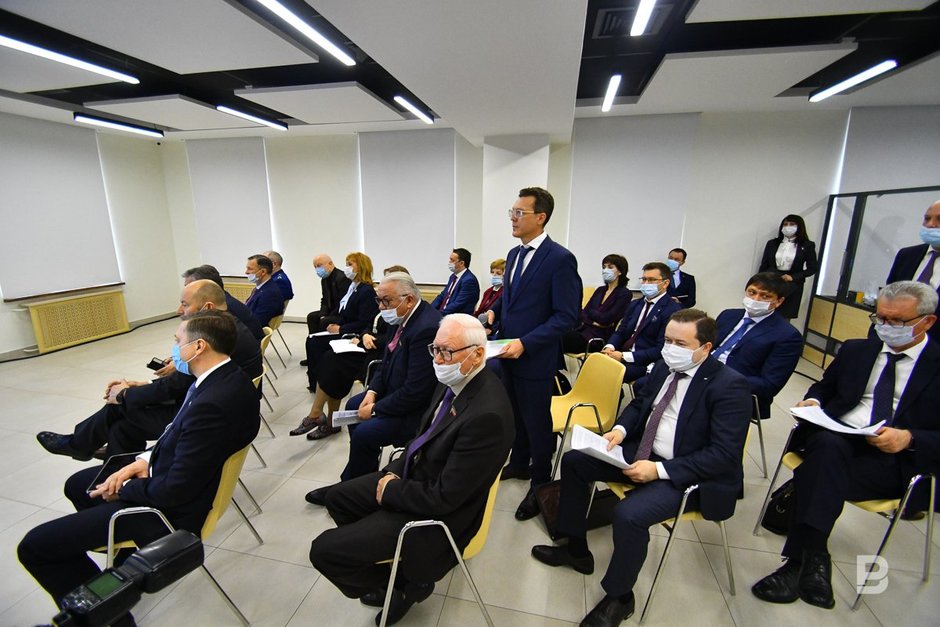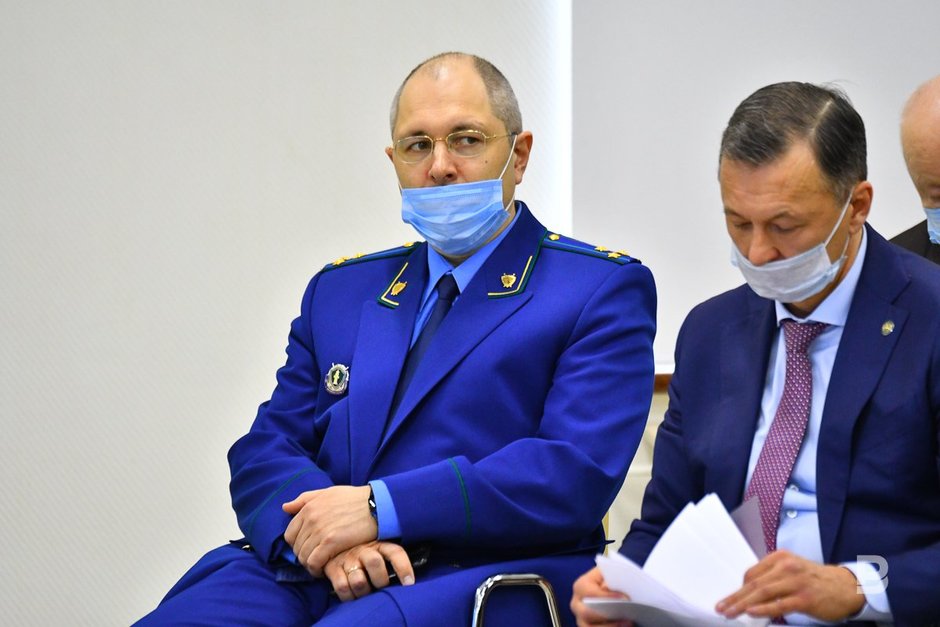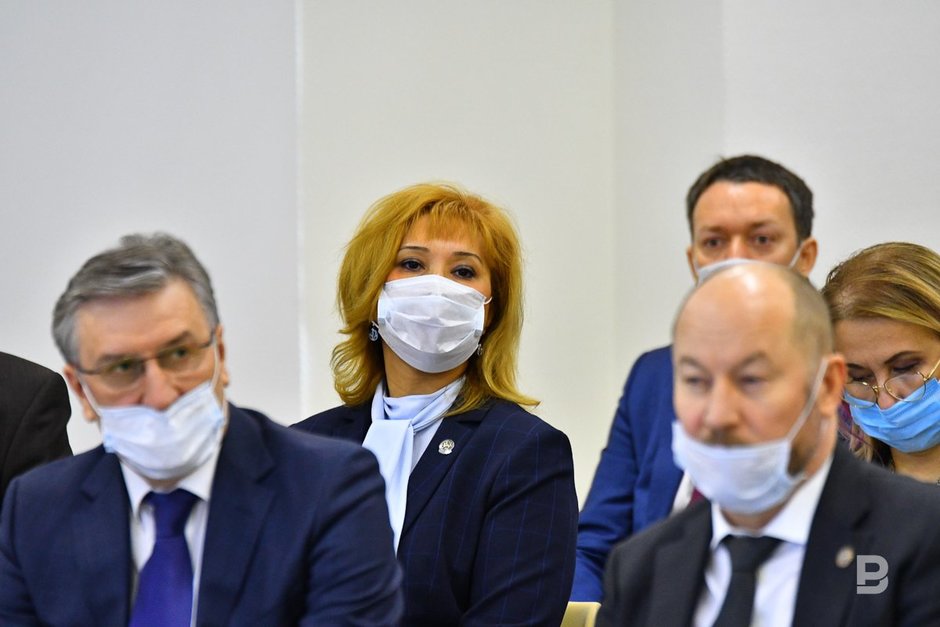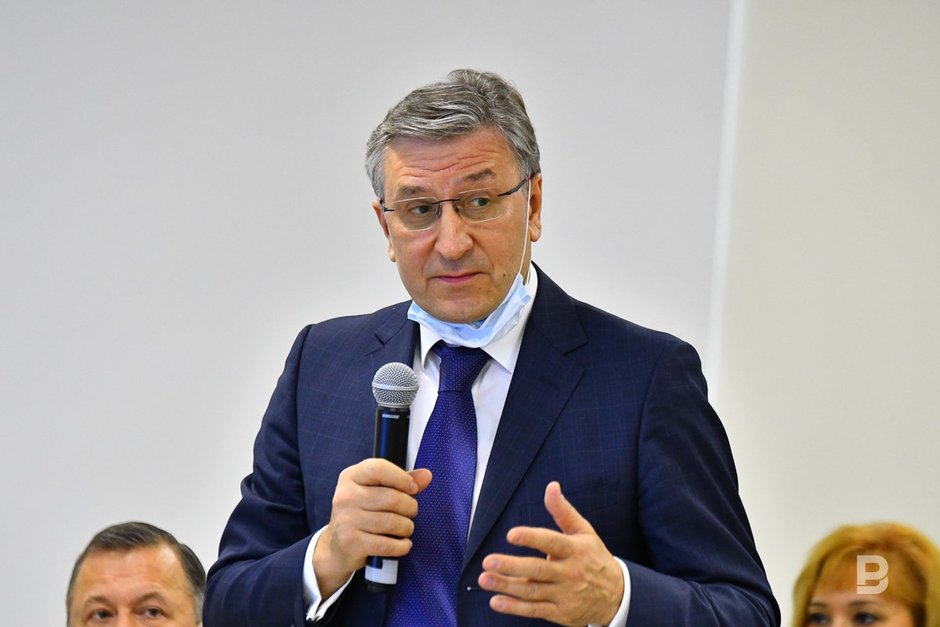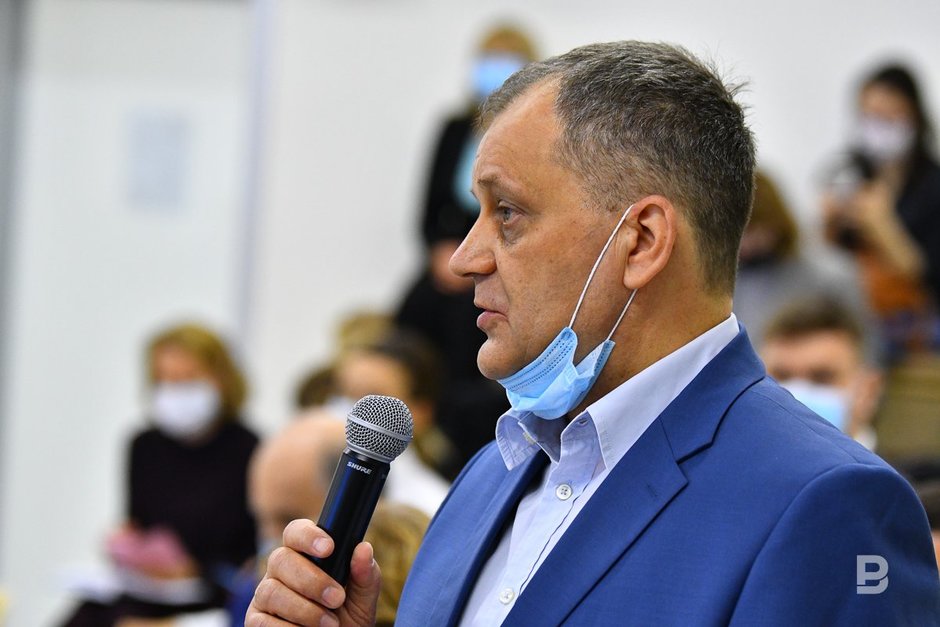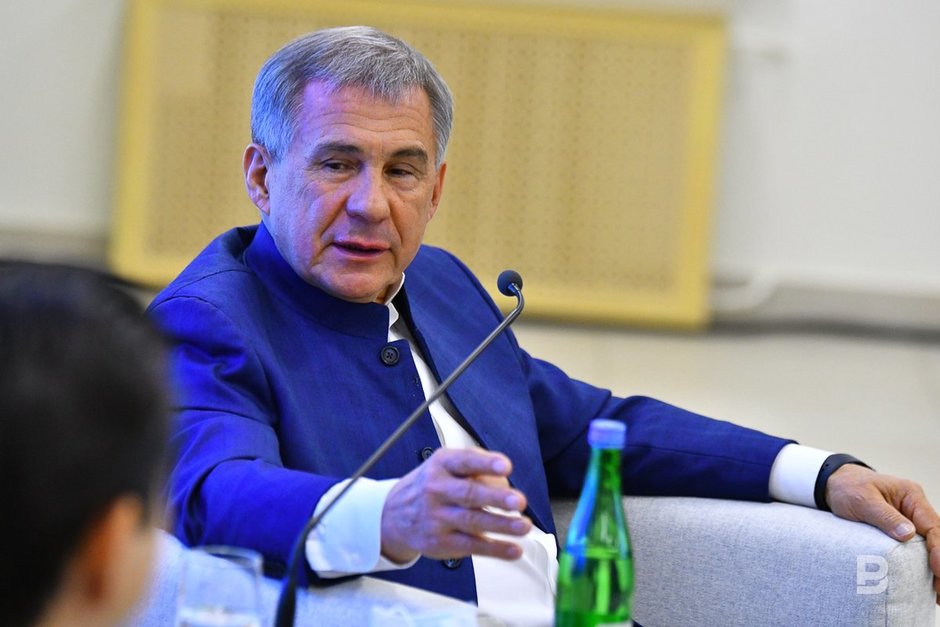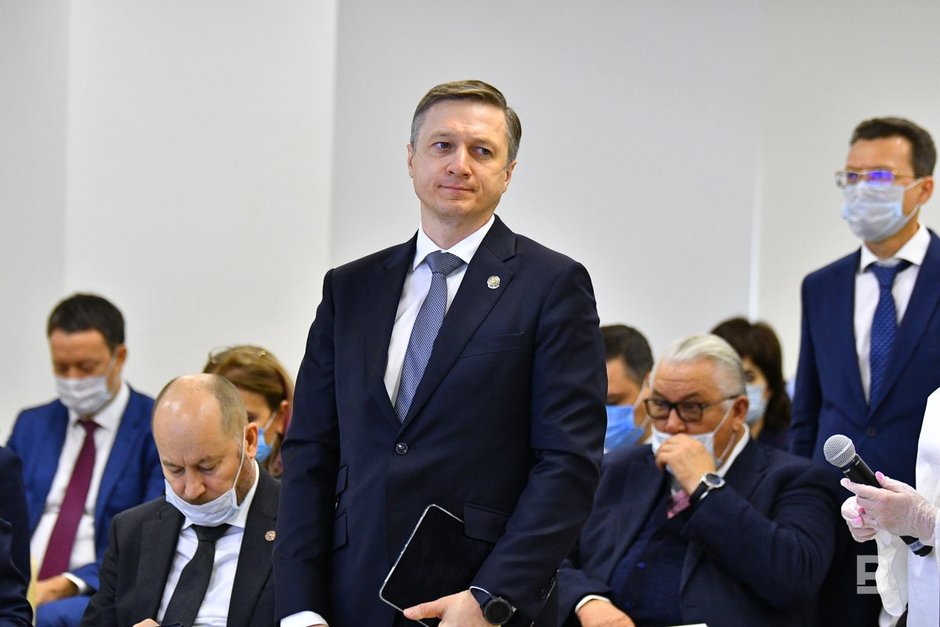'The patent has hit the districts and villages very hard'
12,000 requests from SMEs
The Office of the Commissioner of the President of the Republic of Tatarstan for the Protection of the Rights of Entrepreneurs received 12,000 requests last year. These are not only complaints, but also proposals, options for resolving issues, which “most likely indicates confidence in the authorities”, said Business Ombudsman of Tatarstan Farid Abdulganiev at the opening of the meeting of the head of the republic and representatives of SMEs.
“A good way of working, we have feedback, quickly get information, make decisions," said President of Tatarstan Rustam Minnikhanov about the meetings with the business community.
He reminded that in terms of the number of SMEs, the republic is the first in the Volga Federal District and the seventh in the country. There are 155,000 small and medium-sized enterprises in Tatarstan, where 534,000 people are employed, as well as more than 115,000 self-employed. All of them make up the majority of the working-age population of the republic — 33%, and produce at least 25% of the gross regional product.
“The involvement and interest of the heads of our municipal districts and cities is very important in our work… Not everyone still understands the tasks set by the leadership of the republic. It is necessary to make a decision on the creation of infrastructure. This is primarily due to agglomerations. We see how much agglomeration is developing today, and at the same time, all this burden — on the socio-cultural sphere, especially transport one, the lack of jobs in residential complexes, in our complex development — these issues, of course, need to be balanced," said Rustam Minnikhanov.
He drew attention to the need for systematic, planned work to address social issues (which have been acute recently), including the problem of a shortage of schools, as well as to create new business opportunities, especially in the territories of complex development.
Tax has doubled for rural businesses.
At the end of last year, when the republican deputies adopted the bill on the patent system of taxation, the head of Tatarstan promised to return to this issue if entrepreneurs have problems. And they were not long in coming.
On 31 March, Anvar Zigangirov, the chairperson of the Council of Entrepreneurs, deputy of the Aznakayevsky District Council, complained that the transition to the new patent system has hit rural entrepreneurs. The amount of their tax has doubled on average.
“Under the unified tax on imputed income (UTII), entrepreneurs paid tax on the area of the service hall by the type of activity 'public catering' and on the area of the sales hall of the retail network object by the type of activity 'retail trade', but under the current patent bill, entrepreneurs pay on the area of the entire object, which significantly increases the tax burden. Using the example of my store, I can say that the total area of the store is 101 square metres, the retail area is 54, and the tax increases by as much as 63%. With a potentially possible income, if I paid 202,000 in 2020, then now — 484,000, the load increases more than twofold," Anvar Zigangirov drew attention.
“When the UTII was in effect, there was exactly the 'trading area', but when they switched to the patent, the federal law says the 'object'. This resulted in a 'total area'. Lawyers have given the interpretation, and now these aspects are being brought into line," Leonid Yakunin, the hairperson of the State Council Committee on Budget, Taxes and Finance, explained the legal incidents.
“The potential income hit the districts and villages very hard, because it was equated to the district centres, where the population is larger, so as the demand. An unaffordable tax," the Aznakaevsky businessman added.
Albina Gubaydullina, the managing partner of Palladium Audit Firm PLC, drew attention to that some types of activities have not been included in the patent, for example, sports and recreation activities that were previously in the UTII, as well as the necessary sanitary and hygienic services in the current situation.
“Of course, when the law bill adopted, they could not take into account all the points. But our task was not to worsen the conditions that had been for the category using this system. I tried to keep it for three years, but we didn't get any support, but it's okay. Therefore, the question is, if we have increased the tax burden somewhere, let's, the representatives of the parliament here, the first deputy minister of economy here, he will say that we have previously discussed this," the head of the republic said.
First Deputy Minister of Economy of the Republic of Tatarstan Rustem Sibgatullin said that the tax authorities, together with deputies and representatives of the Chamber of Commerce and Industry of the Republic of Tatarstan, have developed four amendments to the bill on taxation. The patent rate will be calculated based on the size of the usable area (retail space), a reduced coefficient will be applied for groups of municipalities, and an even lower, additional coefficient will be applied for rural settlements. Leonid Yakunin added that for the villagers it will be 0,6%. Besides, the deputy said that the project proposes to reduce the revenue base (potential income) for a number of areas of trade activities, the bill will be included up to 10 areas of entrepreneurship (their number will increase to 91) where it will be possible to use the patent.
Leonid Yakunin did not specify what these fields are — he has not yet seen the official document, the project will be submitted to the State Council of the Republic of Tatarstan in a few days. It will be considered at the next meeting of the committee, on April 13, and then at the session of the State Council of the Republic of Tatarstan. The head of the committee assured that the amount of the new tax under the patent system will return to the previous level of the UTII.
Why can't a second-grader read?
In the spring, schoolchildren, on distance learning, greatly lowered their academic performance, especially in primary school, said Diana Mindubaeva, the public representative of the business ombudsman in the Bugulminsky district. She reported that a mother of many children turned to a local individual entrepreneur who is engaged in additional education asking her to teach her child — a second-grade student — to read.
“Only because of the difficult financial situation, she wanted to pay for the services with part of the maternity capital. They could pay this way if they turned to a legal entity, but since this is an individual entrepreneur who has the same license and provides the same services, there is no right to pay with the maternity capital. This issue concerns not only Tatarstan, the real problem is solved by entrepreneurs through the courts in other regions of Russia.”
“According to the bill on education, it is really possible to pay for these services to an individual entrepreneur who has a license, but in the rules of the government decree that establish the payment procedure, it is written: 'organization'," said Ayrat Farrakhov, Deputy of the State Duma of Russia from Tatarstan Ayrat Farrakhov explained.
As a result of court proceedings, the issue is still always resolved in favour of the entrepreneur, if he has a license, said Rustam Minnikhanov.
“The question is fair, it is necessary to change the bill and the government decree," the parliamentarian agreed.
However, the head of the republic was puzzled why a second-grader couldn't read.
Perhaps, the family has deeper problems, the president of Tatarstan suggested. He instructed to investigate the specific situation and, if necessary, to provide support, especially since now there are all kinds of teaching methods for children.
Own coffee and water
The experiment on labelling of packaged drinking water, which is produced in Russia or imported into the country, has been going on since 1 April last year, and labelling becomes mandatory this year, from 1 June, said Timur Berdnikov, the representative of the Tarkhanskaya trademark. According to him, this will entail the costs of enterprises, the producers of bottled water will be forced to raise prices. Timur Berdnikov asked the head of the republic to label water by analogy with medicines — to exclude from the system of mandatory labelling the water with a selling price of no more than 25 rubles per bottle and label everything that is more than 25 rubles. The entrepreneur believes that market participants are not ready for labelling, the experiment does not work, and suggested contacting the Russian government to postpone the start of mandatory water labelling for another year, until June 2022.
Rustam Minnikhanov praised the quality of Timur Berdnikov brand water and promised to raise these issues at the federal level. However, in his opinion, water marking is inevitable, it is necessary to exclude counterfeit goods, which are quite a lot on the market. The head of Tatarstan asked about the cost of marking equipment.
“From 1,5 million rubles, plus consumables. There are nuances in the programmes of subsidising and providing assistance to enterprises that have big restrictions under the OKVED (Russian Classification of Economic Activities) 'Mineral Extraction' — these are legislative issues that we are discussing with the centre," Berdnikov said.
The president of the republic instructed to think over the form of leasing support for the purchase of equipment and also asked deputies and heads of ministries to think about how to overcome the transition stage from the experiment to the real mandatory labelling of water in the most gentle way.
Ilnar Shamsutdinov, the owner of the largest self-service coffee shop chain in Russia, HOHORO, told how his company, which enters foreign markets through online trading, grew in a year. In Turkey, there is a whole range of programmes for entrepreneurs from the Union for the Development and Support of Small Businesses.
“We've learned from our partners and contractors from Turkey that if the marketplace is used to send raw materials to coffee shops and around the country, up to 80% of the costs of marketplaces (storage and logistics) will be subsidised. We are talking about that the marketplace shifts its costs to the shoulders of entrepreneurs. In this regard, I have the request to develop a similar programme here in Tatarstan for local sellers," Shamsutdinov asked.
The head of the republic instructed the ministry of economy to study this experience and make the corresponding proposal to the federal colleagues.
What to do with boots in summer?
Public representative in the Menzelinsky municipal district Damir Kayumov, who produces light industry goods, complained about the frequent inspections of Rospotrebnadzor. The inspectors establish that the entrepreneur received the marking in a simplified manner, in the Honest Mark (Chestny Znak) system. The inspector, drawing up the protocol, indicates that the simplified scheme is not legal and withdraws products from circulation before the court decision, Kayumov said.
“Already in court, half of the decisions are made in favour of the entrepreneur, they still recognise the legality of the marking. For example, in the winter, shoes were seized, and in the summer, by a court decision, they were given back. But what to do with winter shoes in summer? Is it possible to make changes to the rules of registration of violations so that the first time the inspectors could limit themselves to a warning and the goods were not seized? This system has just entered the activity of entrepreneurs," the businessman reminded.
“If the violation is primary, a warning would suffice. If we are talking about systemic violations, then there should be a commensurate punishment, " the prosecutor's office representative replied.
Masters of folk crafts, and there are 34 such enterprises in Tatarstan, were asked to reduce the tax rate under the Simplified Tax System (USN), it is difficult for them to compete with producers from China.
Rustam Minnikhanov instructed to organise a similar platform for meetings of self-employed with the president of the republic
Snow — to taxes, loans — to self-employed
Liana Pakhareva, the director general of the Centre for Support of the Self-Employed ANO, stressed that most banks do not have risk assessment methods and lending programmes for the self-employed. She asked to support Tatarstan citizens who apply the tax on professional income. Rustam Minnikhanov instructed the heads of the ministry of economy and the Central Bank of the Republic of Tatarstan to organise a similar platform for meetings of the self-employed with the president of the republic. The head of Tatarstan agreed: this category of Tatarstan citizens needs the support of banks. At the same time, he reminded that the bill was adopted to bring small businesses out of the shadows and involve future entrepreneurs, young people, and students in it. According to the head of the republic, it is necessary to control that there is no 'indulgence' when companies act dishonestly: they break businesses, from which self-employed are separated.
“Thus, we can devalue and lose this form of work, if the entrepreneur wants to deceive the state... We should form a transparent business," Rustam Minnikhanov addressed Liana Pakhareva as the coordinator of the new direction.
Albina Shabaeva from the Nurlat district complained about the snowy winter, which cost a lot of money for landlords.
“In accordance with the rules of landscaping, we are obliged to keep the area around the places where we conduct our activities clean. The winter turned out to be snowy, and this is a significant cost that we can not take into account as an expense in the USN, as in the UTII. Is it possible to include 'Snow removal' in the same way as spending on disinfectants during the pandemic in the article of the Tax Code of Russia?" the public representative asked.
According to Ayrat Farrakhov, who has worked on this issue, if an entrepreneur turns to a third-party organisation for snow removal, they bear an additional burden, which does not fall under any benefits. It is difficult to track those who spend money on this, they noted in the audience. We are talking only about landlords, Shabaeva reminded in response.
“It is absolutely necessary to make such decision, you have costs, you have to attract transport," the president of Tatarstan asked the deputy of the State Duma of the Russian Federation to deal with this issue unconventionally.
Rustam Minnikhanov thanked entrepreneurs for their feedback and reminded the deputies that the leadership of the republic would rely on them, raising the topic of business support.
“We all need to create a favourable regime in the municipalities. A businessman is a person who risks his property. He can earn, he can lose. And this is a person who is self-sufficient, he does not ask the state: “Give me this, give me that.” Yes, he needs support measures to run his business. The opportunity to support businesses, create infrastructure is our main task," the head of the republic summed up.
